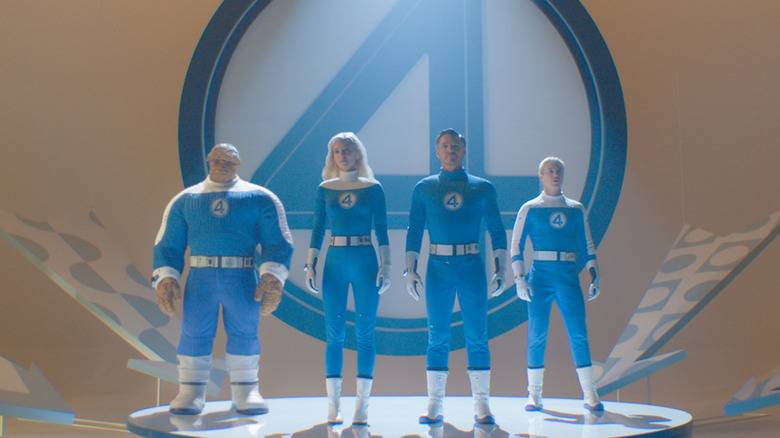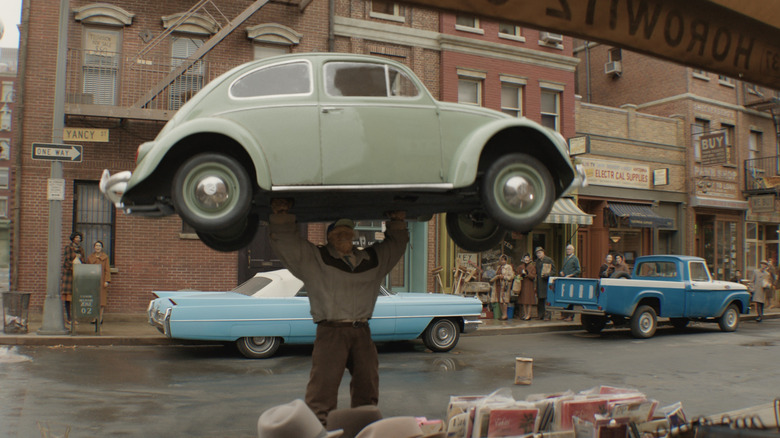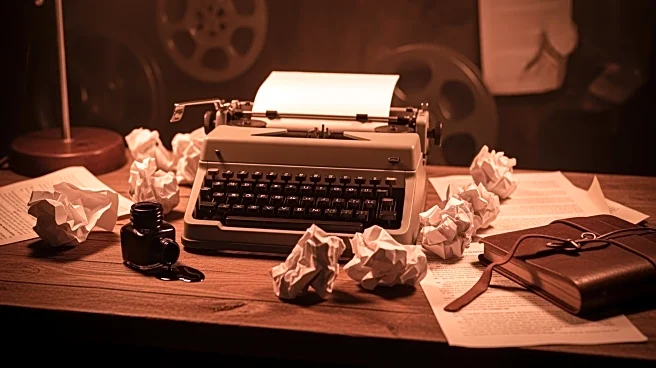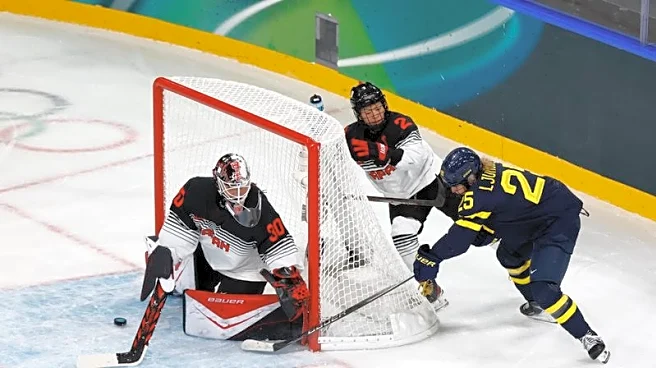
Look! Up in the sky! It's a bird! It's a plane! It's a spoiler warning for both "Superman" and "The Fantastic Four: First Steps."
It's a good time for superheroes. For a little while, a string of dull,
poorly written, hastily produced movies gave audiences genre fatigue and threatened to bring down the whole superhero cinematic industrial complex. This summer, however, is different. Though not every movie has been a box office winner (we failed you, "Thunderbolts*"), we have seen the most sincere and earnest superhero movies in years come out in a short timespan. Though many fans would like to think DC and Marvel are polar opposites, more often than not, they reflect one another. At the very least, that's the case with James Gunn's "Superman" and the new, more hopeful, optimistic, and cosmic take on Marvel's first family in "The Fantastic Four: First Steps."
Though the two movies are very different — one kickstarts its cinematic universe, the other brings it closer to a supposed reset — they nevertheless have more in common than you'd think. They are both reboots of iconic superheroes -- Superman and a reinvention of the Human Torch both being the very first superheroes of DC and Marvel -- that are hugely important to the history of their respective comic book publishers, and each has gone through poorly received and unsuccessful movies in the past 20 years. But their time in the sun has come at last.
Read more: Every Live-Action Superman Costume Ranked (Including David Corenswet)
A World That's Already Super

Like James Gunn's "Superman," the new "Fantastic Four" movie throws us off the deep end and into a fully realized world of heroes. At the start of the movie, the Fantastic Four have already been active for four years (three in the case of Superman) and the movie spends a lot of time exploring just how much he world has changed due to their impact. Granted, the Fantastic Four seem to be the only superpowered individuals in this world — unlike "Superman" which has been populated by metahumans for centuries — but this is nevertheless a world that has already seen plenty of big superhero stories. The movie begins with a montage exploring the history of the heroic family and every one of the many villains they have defeated over the years — from the hilarious Mole Man to Red Ghost and his Super-Apes.
This means that the movie proper can focus on the heroes facing a big personal crisis that interrogates their place in the world rather than just showing them learning the ropes. Everyone has complete control over their powers, and the tension comes from them having to face the very first threat they can't just fight easily. Similarly, when we first meet Clark Kent in "Superman" he's already earned the world's love and admiration, and he's very confident in his abilities. That the movie begins mere minutes after his vey first defeat means the character goes through an existential crisis and ponders what his place in the world is, especially after he learns that his parents wanted him to rule over Earth.
Indeed, both movies throw philosophical questions at the heroes through their own character dynamics. In "Superman," we see Lois and Clark arguing about whether Superman should interfere in foreign affairs, what authority a superhero really has, and whether doing good supersedes proper protocol -- and the tension these conversations create has an impact on their romance. In "Fantastic Four: First Steps," Sue and Reed argue over what responsibility their "family" has to the world and whether that responsibility is more important than their commitment to each other.
Caring For Normal People

To that point, both movies have a big focus on showing the impact their heroes have on everyday people, and showing that everyday people interact with the heroes. This is something that's been solely missing from the superhero genre. Back in the very, very early days of the Marvel Cinematic Universe. this was an important part of the movies, as we saw the heroes saving regular people all the time, getting them to safety, and offering comfort while their worlds crumbled around them. Nowadays, that's almost entirely lost, with the stakes so high that there is simply no room to care about individuals — which is why "Thunderbolts*" felt so refreshing, and emotionally devastating.
"Fantastic Four: First Steps" continues that with a big focus on the relationship between the titular group and the public, with crowds gathering on the streets to cheer for the heroes when they leave Earth to find a way to stop Galactus or to boo them when they fail to do so. We see more of them actually saving people throughout the story than actually beating up villains (in no small part due to Galactus simply being too big a threat to beat up, literally). Likewise, all throughout "Superman" we see Clark go out of his way to prevent any damage from coming to people, saving kids from rubble, saving a dog and even a squirrel from being crushed by a space kaiju. This approach makes the heroes seem both more approachable and also truly heroic.
One of the best sequences in all of "Fantastic Four: First Steps" involves Ben being greeted and cheered on by a group of kids who want him to lift a car (and then throw it). Meanwhile, a citizen in Superman was honored by a time when the Big Blue Boy Scout stopped by his food cart for some tasty eats. Forget fighting the big bad guy, this is what it means to have superheroes.
If you're looking for the easiest way to keep up with all the major movie and TV news, why not sign up to our free newsletter?
Read the original article on SlashFilm.












